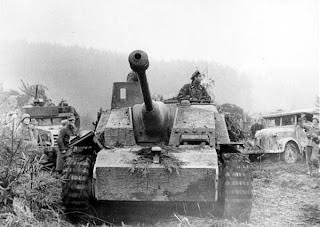
Che Guevara, also known as “El Che” or just “Che” was born June 14, 1928, was an Argentine Marxist Revolutionary and an important figure during the Cuban revolution. He was a very intelligent man and had many professions such as a physician, author, intellectual, guerrilla leader, and much more. After he was murdered in the jungles of Bolivia in 1967, Guevara became a global icon within pop culture. Even to this day, people still recognize him by wearing T-shirts with his face on them. Many people view Guevara as a hero, but was he really a hero or an extremely radical communist revolutionary?
While he was a young college student studying medicine, Guevara traveled through Latin America and witnessed things that would change his views forever. During these trips he was transformed by the extreme poverty that he observed. The conclusion that he came to was that the poverty in these regions was the result of monopoly capitalism, neocolonialism, and imperialism. Guevara believed that the only way to end the poverty was a world revolution. Ever since he saw the poverty that people had to live in, Guevara became dedicated to make life better for the poor people. He was very militaristic and thought that things were resolved by war and fighting and had a very radical point of view.
Guevara left his job as a doctor and joined Cuban revolutionary Fidel Castro in Mexico. While living in Mexico, Guevara, Castro, and eighty other men and women traveled to Cuba where they would try to overthrow the government of General Fulgencio Batista. This movement would later be called the July 26 Movement. Guevara and the rest of the army planned to set up camp in the mountains of Sierra Maestra but on their way they were attacked by government troops and stripped of weapons and many men and women were killed. After the atta ck, they were left with only sixteen men and twelve weapons to share between them.
ck, they were left with only sixteen men and twelve weapons to share between them.
Eventually, after many months of scrounging for weapons and ammo in isolated army garrisons, Che and his small army were able to collect their supply of weapons and take control of more and more territory. The territory that they did have control of was distributed evenly among peasants that were homeless and treated unfairly. To thank Guevara, Castro, and his soldiers, the peasants helped in the guerrillas (or battles) against Batista. In addition, some peasants even joined the army in order to defeat Batista’s soldiers.
Castro and Guevara’s army succeeded in overthrowing Batista and proceeded to pass new laws that benefited the peasants and gave them land that was previously owned. In doing this, it was a good thing to do for the poor and for the leaders, but for other citizens who were middle and high class, it was not good news. In some people’s eyes, Che Guevara was a hero who stood up for people that were less fortunate. For others he is a radical communist because he took away from people that had land, money, and a home.
While he was a young college student studying medicine, Guevara traveled through Latin America and witnessed things that would change his views forever. During these trips he was transformed by the extreme poverty that he observed. The conclusion that he came to was that the poverty in these regions was the result of monopoly capitalism, neocolonialism, and imperialism. Guevara believed that the only way to end the poverty was a world revolution. Ever since he saw the poverty that people had to live in, Guevara became dedicated to make life better for the poor people. He was very militaristic and thought that things were resolved by war and fighting and had a very radical point of view.
Guevara left his job as a doctor and joined Cuban revolutionary Fidel Castro in Mexico. While living in Mexico, Guevara, Castro, and eighty other men and women traveled to Cuba where they would try to overthrow the government of General Fulgencio Batista. This movement would later be called the July 26 Movement. Guevara and the rest of the army planned to set up camp in the mountains of Sierra Maestra but on their way they were attacked by government troops and stripped of weapons and many men and women were killed. After the atta
 ck, they were left with only sixteen men and twelve weapons to share between them.
ck, they were left with only sixteen men and twelve weapons to share between them.Eventually, after many months of scrounging for weapons and ammo in isolated army garrisons, Che and his small army were able to collect their supply of weapons and take control of more and more territory. The territory that they did have control of was distributed evenly among peasants that were homeless and treated unfairly. To thank Guevara, Castro, and his soldiers, the peasants helped in the guerrillas (or battles) against Batista. In addition, some peasants even joined the army in order to defeat Batista’s soldiers.
Castro and Guevara’s army succeeded in overthrowing Batista and proceeded to pass new laws that benefited the peasants and gave them land that was previously owned. In doing this, it was a good thing to do for the poor and for the leaders, but for other citizens who were middle and high class, it was not good news. In some people’s eyes, Che Guevara was a hero who stood up for people that were less fortunate. For others he is a radical communist because he took away from people that had land, money, and a home.



